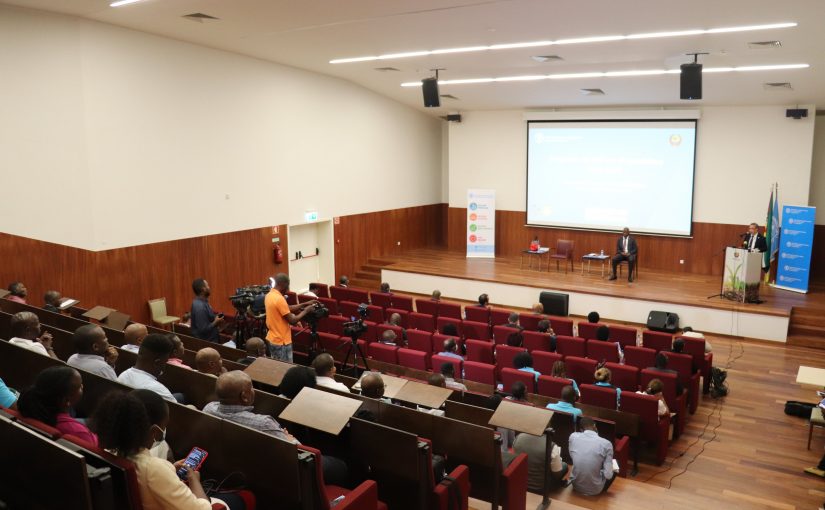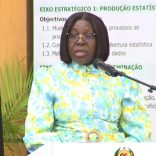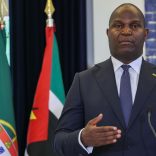Attorney-General: Mozambique's GIFiM to join Egmont Group
Mozambique: FAO facing over US$80M deficit to implement country programming 2022-2026

Photo: Twitter / @FAOMozambique
The United Nations Food and Agriculture Organisation (FAO) announced in Maputo this Monday (19) that it is facing a financial deficit over 87 million US dollars for the implementation of its country programming for 2022/2026 period in Mozambique.
According to country representative, Hernâni da Silva FAO has so far managed to mobilise only 30 million US dollars of the 120 million needed.
In order to make up the shortfall, da Silva said the FAO is working closely with the ministries of Agriculture and Rural Development (MADER); Land and Environment (MTA); Sea, Inland Waters and Fisheries (MIMAIP) and hopes to count with the generous contribution of cooperation partners.
“We concluded that the total amount we need to implement these strategic milestones over the next five years will be about 120 million US dollars, and we only have around 30 million US dollars available. We have to work harder to mobilise the missing 87 million,” said da Silva speaking during the Country Final Consultation and Validation of the Country Programming Framework 2022-2026.
✅Officially presented today the final consultation & approval of the @FAOMozambique Country Framework Programme 2022-2026🇲🇿, in presence of the Mozambican Vice-Minister of Agriculture, Mr. Olegário Banze & key partners from Government. Working together for #Zerohunger
🇺🇳🤝🇲🇿 pic.twitter.com/zayLnnppO1— FAO Mozambique (@FAOMozambique) September 19, 2022
According to the source, FAO will continue to focus on three key areas, namely economic diversification and sustainable livelihoods; sustainable management of natural resources and environment; climate resilience and response to emergencies.
FAO’s new strategic framework, according to Da Silva, will focus on transforming agri-food systems to improve efficiency, inclusive and profitable for better productivity, nutrition and a better living standards taking care of not leaving anyone behind.
At the meeting, da Silva also presented the report of the last five years.
He stressed that FAO has collected and analysed statistical data on the agriculture sector, livestock and fisheries; and marketing; reduction of animal mortality, caused by contagious diseases among others.
FAO also worked on the access and increase of improved agricultural inputs, nutrition, hygiene and health; production of vegetables and fruits of high nutritional value; support to families affected by natural disasters, among other actions.
Despite progress made, according to Da Silva, there are still challenges such as high poverty rates and vulnerability among peasant farmers, worsened by low productivity, financial crisis and environmental degradation.
Da Silva also mentioned recurring extreme weather events such as drought, cyclones and floods, terrorism in Cabo Delgado province, in the far north of Mozambique, the Russia/Ukraine conflict, among others.
“The number of people facing food insecurity is still high, about 38 percent of rural population, meaning about 11 million people who suffer from food insecurity every year,” he said.
FAO had budgeted about 45 million US dollars for the previous Country Programming, but ended up spending 113 million US dollars due to changes in the global financial environment; extreme weather events that hit the country.













Leave a Reply
Be the First to Comment!
You must be logged in to post a comment.
You must be logged in to post a comment.